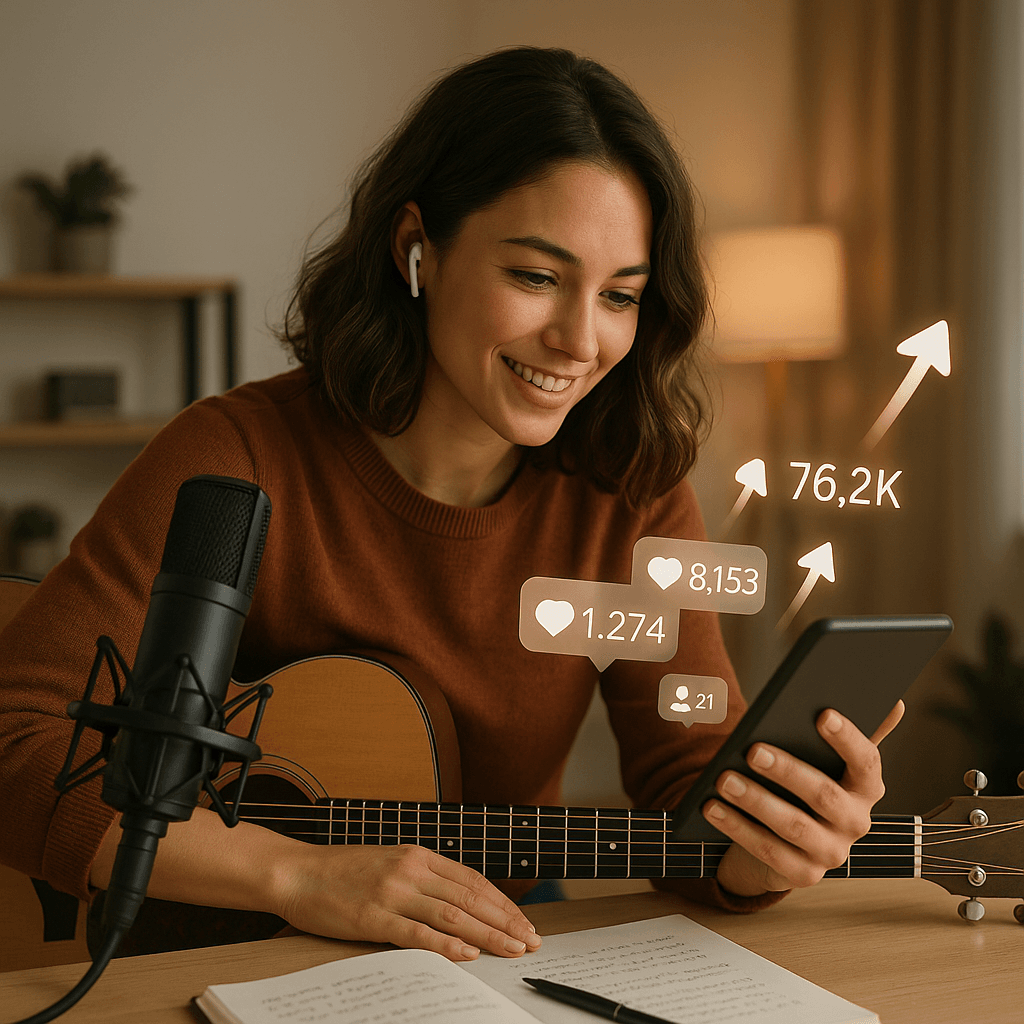An indie singer just proved that with the right strategy, independent artists can still crack TikTok's notoriously hostile algorithm. Sophia James' 'Group 7' experiment has exploded to over 76 million views, turning her song 'So Unfair' into a viral sensation and sparking a global meme that even caught Malala Yousafzai's attention.
Sophia James didn't expect her social media 'science experiment' to work. The indie singer was just trying another desperate attempt to get her music heard on a platform that, by her own admission, 'hates musicians.' But sometimes the most unexpected strategies crack the code.
James' Group 7 video has now surpassed 76 million views, making her song 'So Unfair' a viral hit and proving that independent artists can still beat TikTok's algorithm - if they're willing to think outside the box. The experiment started October 17 with a series of seemingly random videos, each tagged with different 'group' numbers to track algorithm performance.
'I am posting a bunch of videos and seeing which ones reach the most viewers,' James explained in her Group 4 video. 'This is the fourth post of the batch, so you are Group 4.' The first few attempts followed standard TikTok formulas - dancing, lip-syncing, holding props. Groups 1 through 6 barely registered.
But Group 7 hit different. James can't explain why this particular video exploded while others flopped. 'It's a puzzle to me,' she told Wired. 'I don't know if it has anything to do with the fact that, like, numerically, the seventh video in a batch has a higher chance of hitting the algorithm?'
What she does know is that the exclusivity angle tapped into something powerful. Users began treating Group 7 membership like an elite club, flooding comments with memes and camaraderie-based content that fed the algorithm's engagement hunger. Even Nobel Peace Prize winner Malala Yousafzai jumped on the trend, using her Group 7 status to promote her new book.
'I woke up to a text from a friend just saying Malala is in Group 7,' James recalls, still sounding amazed. 'That was incredibly unexpected.'
The viral success comes at a crucial time for independent artists struggling against platform bias. James represents a generation of DIY musicians who've watched TikTok's 'golden age' of music discovery during COVID completely flip. 'There was this mass signing of TikTok artists to major labels,' she explains. 'But five years later, that trend has completely flipped and it's really, really frustrating.'
The algorithm doesn't favor indie artists because 'there is no machine behind them pushing their content out,' James notes. She comes from a network of independent musicians who consistently report that 'TikTok hates musicians, TikTok hates independent artists and songwriters.'












